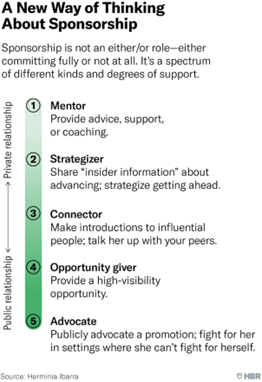Dr. Tina Young Poussaint Interviewed by Dr. Asha Sarma

Dr. Tina Young Poussaint is the first past president of the ASNR. She is the Lionel W. Young Chair in Radiology, Director of Neuro-oncologic Imaging, Director of the Pediatric Neuroradiology Fellowship, Chair of the Institutional Review Board, Director of the Neuroimaging Center of the Pediatric Brain Tumor Consortium, and Professor of Radiology at Boston Children’s Hospital, Harvard Medical School. She is an outstanding role model who has mentored numerous trainees and faculty. I interviewed Dr. Poussaint in order to collect her wisdom for the benefit of young investigators and junior faculty.
What is your advice to Young Professionals who are hoping to become more involved in national societies?
- Take a broad approach to a topic and refine an area of interest
- You may be asked to speak on a topic that is not your main area of interest, but it is still worthwhile if it is a great opportunity to get on the “big stage”. For example, although my central career focus has been pediatric neuro-oncologic imaging, my first talk at ASNR was a general pediatric neuroradiology topic on imaging of patients with developmental delay.
- Develop a niche and follow your curiosity
- When you collaborate on projects with others, consider whether it could be re-packaged as a talk or abstract to present at a meeting.
- Network within and outside of your institution; a mentor at your institution may help you find mentors at others.
- Build translational teams at your institution: Think about what teams would impact your area of interest. For example, what subspecialists or multidisciplinary teams would you like to collaborate with at your institution? Go beyond your department and consider going to inter-institutional research meetings. Interacting with these teams is good for developing ideas and identifying needs that you can fill as a radiologist or researcher. As neuroradiologists we can often provide opportunities for them to use imaging that they may not even be aware of. This may lead to presentations at meetings, or publications.
- Get involved in young professional organizations which are present in many national organizations. Network, be present, and volunteer. Speak to people who have been in the position and see what they recommend. This is how to get opportunities without pre-existing experience. Everyone has to start somewhere.
- Go to the business meetings at national meetings: You may find out about opportunities to serve and be able to advocate for yourself. Volunteer for committees in small ways, and as you volunteer, others will get to know you
- Find mentors and sponsors you can receive guidance from and who will help you navigate the academy and will advocate for your best interest behind closed doors.
You are a person who gets so much done each day that others wonder how you do it! Do you have any tips on increasing productivity during working hours?
- Selection of projects:
- Find work that inspires you and are passionate about which will keep your momentum going
- If you are asked to do something or to get involved in a project, carefully reflect before you say yes, which will make you more effective in using your time because there are only so many hours in the day. Put effort into figuring out how much time the activity is going to take (e.g., for a committee, how often and for how long do you meet?). Do not get over-extended, which will make you less effective.
- Your decisions may vary based on your values and the stage of your career, keeping goals like promotion in mind. For example, prioritizing publication over excessive committee work may make sense earlier in your career. It is a fine balance and can be very difficult.
- Productivity and organizational hacks:
- Find a dedicated time and place where you can concentrate: either in your office or at home to review and reflect on your list.
- In general, I have been most effective working in solitude in my office at work because there tend to be more distractions at home. Early in my career, when I had something I needed to get done, I would spend short amounts of time at work on the weekend and found that that time could be more effective than longer stretches during the week in a more distracting environment with more interruptions such as meetings. The increased effectiveness of this approach can allow you to be more mentally and emotionally present with your family when you are not distracted by the task. This was especially true for me when I had a young child.
- Keep to-do lists and keep track of what is due or needs to be done.
- Carve out time on your schedule to organize and focus each week: I dedicate about an hour to this task each week.
- I have a variety of different and separate to do lists. I have tried many different approaches: now I use a digital to-do list and a notebook that has a tabbed sections dedicated to different areas of my life, such as “home/family” and “work”. I use a Outlook for my calendar – color-coded for various aspects of life and for whether a response is needed.
- My notebook (Levenger circa) is of the design where pages can be taken out, rearranged, or replaced. I use a pad of paper for more immediate thoughts.
- Dedicate a time each day to review the list at hand.
- Keeping up with important developments in your field:
- Look at the tables of contents of journals relevant to your field each or every other month (or when you have time).
- Maintain a NCBI PubMed account with automated searches for selected topics that will update you by email when new relevant articles are published (you can set the frequency).
- Skim titles and abstracts to select articles for deeper reading.
- Utilize a reference manager such as EndNote or Readcube Papers to keep articles organized: your librarian can be a good resource if you need help.
Are there any habits you have developed that are helpful in balancing your home life and your work life, and what are your tips for others?
- “Take care of yourself first or you will have nothing left to give others.” We give our best to others when we take care of ourselves.
- You can’t pour from an empty cup: consider your mental and physical wellbeing. Without self-care, you will decline.
- Examples include taking time for a walk or to self-reflect, yoga, meditation, reading, and exercise. But don’t feel like you have to finish “leisure reading” books that you are not enjoying.
- This has been more difficult during the pandemic as it is harder to really “get away” and relax during vacation time. Others tend to respect your time more when you are physically away.
- On the other hand, although I generally try not to use my vacation for work, it can relieve stress to have the time to finally just get something done.
- Don’t be afraid to ask for help and delegate some tasks to others who can help you: for example, if financially feasible, hire services for housecleaning, babysitting, and other domestic tasks. When feasible, allow yourself to buy instead of make things for kids’ school and other community activities.
- Share with other colleagues who can provide support. It can help to talk to someone else who is in a similar situation. They might have ideas that are very helpful. You may also be able to help someone else.
Acknowledging variation across institutions, what are your best tips for setting yourself up for promotion?
- Make it a priority that you revisit regularly (about every 3-6 months).
- Maintain your CV on an ongoing basis; otherwise the promotions process can become an onerous task if you’re starting from scratch.
- Review your CV every year with a mentor or sponsor to carve out your trajectory
- Assign time to meet with your chief and attend institutional and/or extra-institutional workshops on career-building at regular intervals.
- Meet with your division chief, chair to get ideas of what you need to do to move forward; do this on a regular schedule. Let them know what you’ve been doing – they may not know about your accomplishments!
- Go to your institution’s workshops, webinars etc. to determine what you need to do; this is often through the office of faculty development.
What is the best approach to recruiting mentors into helping you with a job search or other professional goal?
- Different mentors can be helpful at different times; Build a diverse network. Different mentors can help you with different things. For example:
- Mentors across institutions
- Mentors through societies
- Find a role model who is navigating the academy in a way you aspire.
- Most of my mentorship has revolved around a project or a shared goal. To be a mentor yourself, try to bring others into your projects to provide opportunities to mentees.
- Be a responsible mentee – don’t forget to reach out to the mentor. It should be a bi-directional relationship. Everyone is busy. If you don’t hear from them, it doesn’t mean they don’t care. Go out of your way to schedule dedicated or regular time to connect.
- Mentors will share their own career path, as well as provide guidance, motivation, emotional support, and role modeling. A mentor may help with exploring careers, setting goals, developing contacts, and identifying resources.
- Mentors talk with you. Sponsors talk about you and champion you to advance your career.
- If a mentor is like your coach, then you can think of a sponsor like your agent.
- Mentor talks with you, Coach talks to you, Sponsor talks about you
- While a mentor is someone who has knowledge and will share it with you, a sponsor is a person who has power and will use it for you. Women tend to be over-mentored and under-sponsored. -Herminia Ibarra



